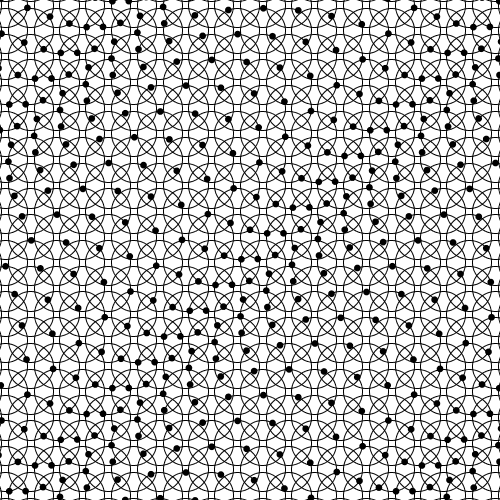 I totally love this activity from @SteveWyborney. Splat is a way to introduce the concept of algebra at just about any grade level. He has produced 50 free lessons (in PPT format) and they span in difficulty from Gr 1-12. So friendly, I think that you could give these and the kids would totally be engaged. You should absolutely check this out. Thanks to @mathletepearce for pointing this one out.
I totally love this activity from @SteveWyborney. Splat is a way to introduce the concept of algebra at just about any grade level. He has produced 50 free lessons (in PPT format) and they span in difficulty from Gr 1-12. So friendly, I think that you could give these and the kids would totally be engaged. You should absolutely check this out. Thanks to @mathletepearce for pointing this one out.Curriculum Tags: All
http://www.stevewyborney.com/?p=893
 I have had this blog post kicking around for a few months now in various stages of completion. I finally forced myself to complete it. It basically has four activities that centre around rational functions in MHF4U. The activities span from a more traditional group work type vertical surface to hands on card sorts, Desmos investigations and MarbleSlides.
I have had this blog post kicking around for a few months now in various stages of completion. I finally forced myself to complete it. It basically has four activities that centre around rational functions in MHF4U. The activities span from a more traditional group work type vertical surface to hands on card sorts, Desmos investigations and MarbleSlides.Curriculum Tags: MHF4U
http://engaging-math.blogspot.ca/2017/02/investigating-graphs-of-rational.html
 This is a neat post from @FiveThirtyEight. It's about the idea that there may be problems in the scientific community with fudging results. It would be a great discussion on how data can be manipulated to get the result that you want. They even have some interactives so you can see how easily it could be done.
This is a neat post from @FiveThirtyEight. It's about the idea that there may be problems in the scientific community with fudging results. It would be a great discussion on how data can be manipulated to get the result that you want. They even have some interactives so you can see how easily it could be done.Curriculum Tags: MDM4U
https://fivethirtyeight.com/features/science-isnt-broken/
 For the last few years @marybourassa has shared her day by days for her grade 10 courses. Now, hopefully, she's doing the same thing with her Calculus classes. She, in her words, is trying to build a thinking class. Hopefully we will get a window in.
For the last few years @marybourassa has shared her day by days for her grade 10 courses. Now, hopefully, she's doing the same thing with her Calculus classes. She, in her words, is trying to build a thinking class. Hopefully we will get a window in.Curriculum Tags: MCV4U
http://marybourassa.blogspot.ca/2017/02/thinking-classroom-day-1.html
Curriculum Tags: All
http://www.theglobeandmail.com/life/facts-and-arguments/i-teach-high-school-math-is-my-workpointless/article34086848/
 If you are into the idea of Growth Mindset but new to the idea, this article might be a great place to start. Thanks to @Robin_Grondin for this one.
If you are into the idea of Growth Mindset but new to the idea, this article might be a great place to start. Thanks to @Robin_Grondin for this one.Curriculum Tags: All
https://ww2.kqed.org/mindshift/2016/12/05/how-to-integrate-growth-mindset-messages-into-every-part-of-math-class/

Here's a neat little story about how bad data affected the English soccer many decades ago.
Curriculum Tags: Gr7, Gr8, MBF3C, MDM4U
https://fivethirtyeight.com/features/how-one-mans-bad-math-helped-ruin-decades-of-english-soccer/
I'm not a coffee drinker so I don't really understand the whole big woop with the Roll Up the Rim contest. But as it is with any contest, there are probabilities involved. In this particular instance the probability of winning is 1 in 6. And as it turns out there are many people on the Interwebs that are willing to test that theory by buying coffee to see how many winners they get. And for the most part the probabilities work out. Check some of them out below. Thanks to @bardprincess for this one
Curriculum Tags: Gr7, Gr8, MBF3C, MDM4U
http://www.ctvnews.ca/lifestyle/100-cup-challenge-aims-to-reveal-roll-up-the-rim-odds-1.3296719
From @FuriousPete https://www.youtube.com/watch?v=DW_VIfpK0fE
From @StevenMerk https://www.youtube.com/watch?v=YlDXqvfq9wk
From @ItsYeBoi https://www.youtube.com/watch?v=Uh1D-VpzJQA
Here's a cool set of data about whether what classic rock means now
Curriculum Tags: MBF3C, MDM4U
https://fivethirtyeight.com/features/why-classic-rock-isnt-what-it-used-to-be/

















